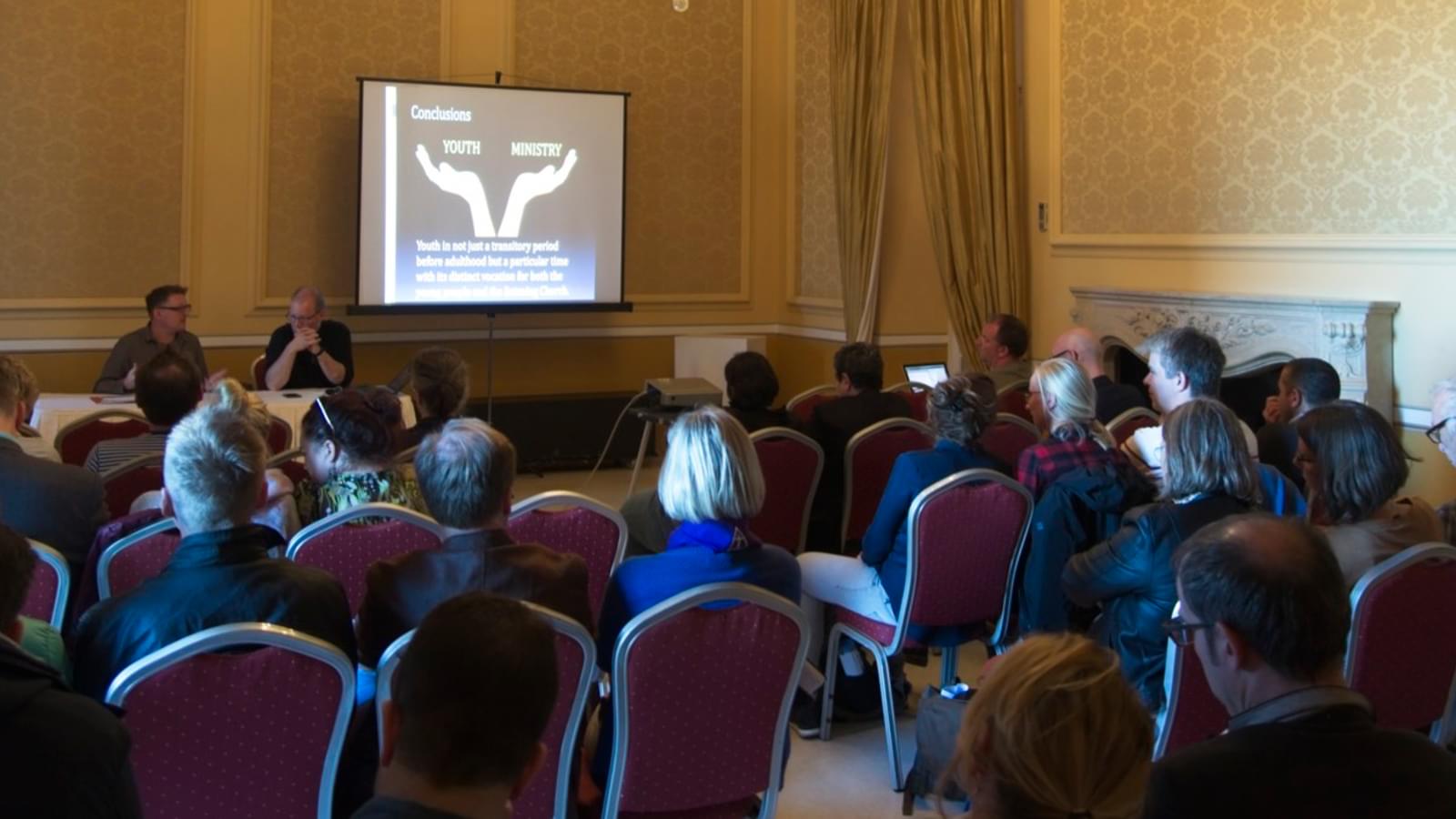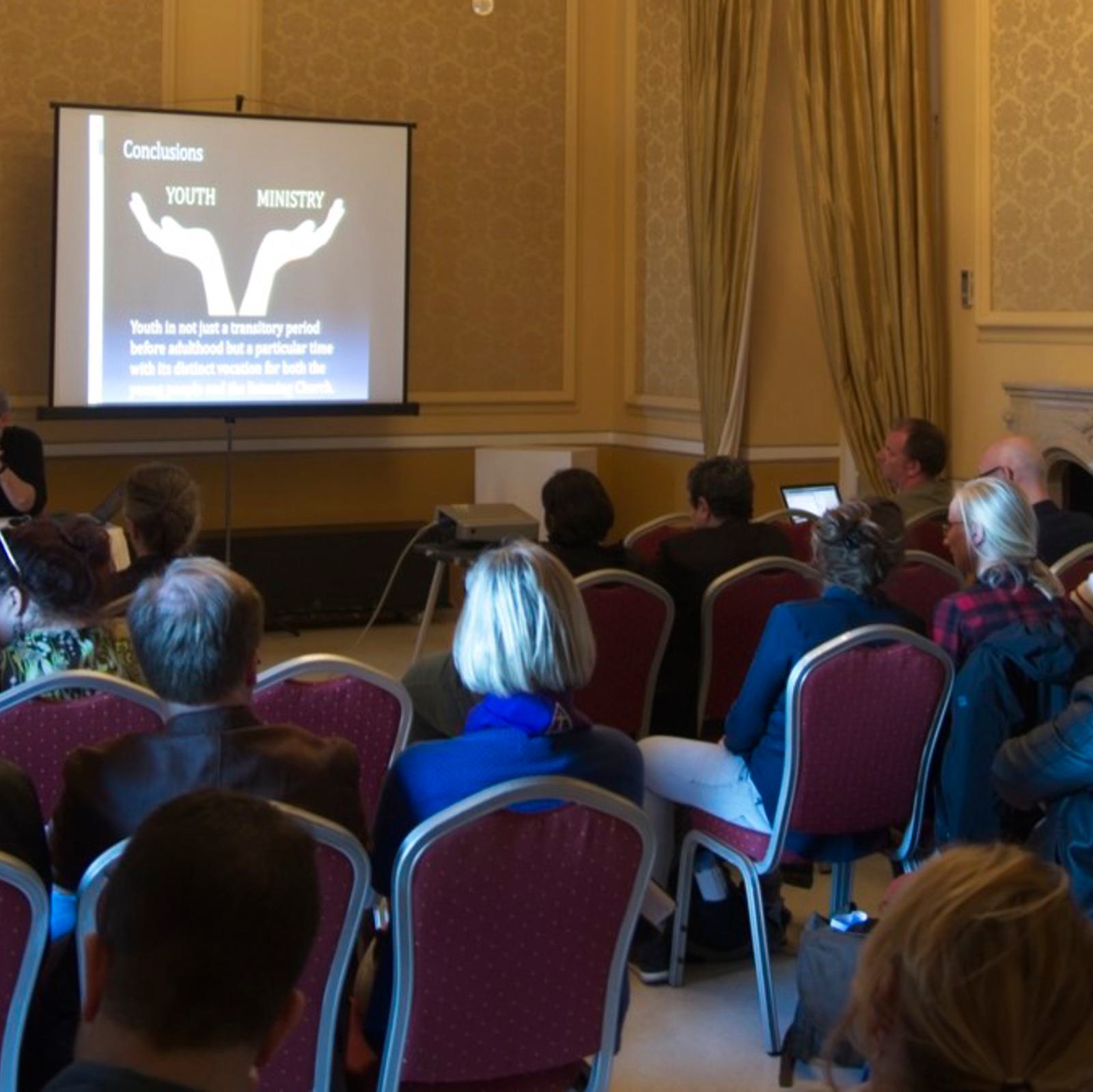From post-confirmation leadership training in Norway to faith-inspired climate change action in South Africa; not forgetting a preview of Youthscape’s own Translating God research exploring how young people today read the Bible. There were a variety of papers presented at the International Association for the Study of Youth Ministry Conference 2024 that give us chance to listen to young people and what they might be telling us about their faith journeys.
Part 2 of this blog reflects on some of these and on what we might be able to learn from Youth Ministry’s history.
Learning from young people
There were several papers that presented research that had engaged directly with young people. A leadership training programme in Norway found that young people participating had ambivalent experiences of both community and leadership, that is to say mixed and/or contradictory experiences. They wanted to be socialised into Christian community (experiencing rites and rituals - institutionality) but also to grow and develop as individuals (self-choice and authenticity – intentionality). However, rather than being seen as a challenge to young people’s faith development, this tension between intentionality and institutionality was viewed as a resource in young people’s pursuit of self-development and fulfilment. Young people were less hesitant to talk about faith or use language of faith at the end of the course, their experience of church community gave them a vocabulary for the self-learning and faith development they had experienced. Referencing Nick Shepherd’s ‘Faith Generation’ the authors suggest that youth ministry that recognises the role of both intentionality and institutionality ‘may develop into an open and strategic practice for identity and faith formation, negotiating the possibilities and pitfalls of ambivalence in a young person`s life. Then, such a youth ministry community can be essential in making faith plausible, coherent, and meaningful’ (Norheim, Sandsmark, Sæbø Rystad & Tveitereid).
Another paper from South Africa highlighted the disconnect between young people’s climate action and faith (Beukes). Young people were frustrated with the gap between religious teachings and the urgency of environmental action. They see some church climate action as symbolic gestures that fail to address the underlying systemic issues and young people emphasise the importance of holding corporations and Governments to account rather than relying on individual actions like tree planting. Findings not dissimilar to those from Youthscape & Tearfund’s Burning Down the House research in 2020.
Further research from Australia into young adults’ own faith narratives, ‘Your Story’ identified various supporting or contrary factors that influenced young people’s faith journeys (Stanton). For those with consistent or increasing commitments to faith or conversion to faith the most supporting factors were internal, including positive actions or practices that have supported their faith stories, along with positive expressions of convictions or confidence. External factors such as the positive influence or direct action of others also had an impact on helping young people keep and/or develop faith. Whilst declining faith was associated mostly with their own feelings or thinking and inner conviction and confidence. Negative thoughts, feelings and emotions related to faith were
strongly evident in deconversion narratives. Young people also picked up on misuses of power within Christian community as a factor in declining faith. The paper concludes to say that the trajectory of a young person’s faith is the result of both the supports and challenges within which their story is upheld. The implication for discipleship is that we ought not to rely on providing one type of discipleship support nor panic at one obstacle or challenge to a young person’s spiritual health.
- What does it mean to see ambivalence in our youth ministry as a resource rather than a challenge?
- Is there a disconnect in our churches between what is important to young people (e.g. climate change action) and our church’s teaching and/or actions?
- If the most significant factors in both increasing and declining faith are internal, how can we help young people to develop and nurture positive internal narratives about faith?
Learning from the past
There were two keynote papers that both reflected on Youth Ministry past, one exploring on the last 30 years of Youth Ministry in the UK and the other comparing the origin stories of three large youth parachurch organisations in the UK, US and Australia. In his paper ‘Is Church really the thing? Youth Ministry beyond Ecclesiocentrism’, Pete Ward argued (again) for a de-centring of Church from Youth Ministry, to really try contextualisation (where the shape and form of Church changes as a result of expressing itself in culture) rather than diffusion (where the Church spreads in its existing form from one place to another).
Ward suggests that whilst many may have claimed to have run missional, relational youth ministries in the UK in the last 30 years, in reality few had been able to resist the gravitational pull of the Church, defaulting to diffusion where youth groups are treated as ways to keep young people ‘in Church’ and ensure its own survival. True examples of contextualisation in Youth Ministry are much harder to find and it requires the Church itself to change. “Where this problem has been overcome, and here I think the work of Chris Russell in Reading and Rachel and Jason Gardner in Blackburn offer significant insights, reaching out to young people involves a significant reorientation of congregational life. In other words, contextualisation becomes a key factor in reshaping not simply faith among young people but also the wider life of the congregation. Where the Church is able and willing to change, I think there is hope.” (Ward)
His challenge was a call to reflect on lessons learned in the last 30-40 years of Youth Ministry in the UK, before the next big push from the Church of England to ‘grow younger’ and the significant financial investment in Youth Ministry that comes with that.
Schoon Tanis, Lukabyo and Scanlan drew out similar themes, albeit through a very different paper and presentation. Their journey through the origin stories of three parachurch organisations of the 20th century led them to identify four ‘Red Threads’ of Youth Ministry they saw running through all three stories: a charismatic leader, key kids, fun, having a wider influence. The learning they drew out for Youth Ministry today had two key points:
1. Creating spaces for sabbath fun within Youth Ministry. Spaces where relational discipleship and play meet, with the purpose of gospel proclamation, to alleviate both (what they describe as) the toxic theology that can lead to young people being used to stem the tide of decline in churches as well as the stresses and strains of growing up in the 21st century. Similarly to Ward’s challenge of contextualisation this is about meeting young people where they are at and growing Church out of relationship and culture.
2. Contribute to the ecclesial space. They argue that Youth Ministry has always been a space that pushes the boundaries of what Church can and should be, challenging what it means to be Church and that this should be championed by those in leadership positions. Again, supporting Ward’s argument that true contextualisation changes the form of what we describe as Church.
- Is your Youth Ministry based on a contextualisation or a diffusion model?
- What do you think about the argument that we need to decentre Church from Youth Ministry?
- How do or might you create spaces for sabbath fun within your Youth Ministry?
Until 2026…
Sadly, the next IASYM International gathering isn’t until 2026 however there are regional conferences next year, so we’ll bring you any updates from those if we’re lucky enough to attend! It’s always worth keeping an eye on the IASYM journal – The Journal of Youth & Theology which is published twice a year in Nov & May.
References:
Nordheim, B, Sæbø Rystad, L, Tveitereid, K, Sandsmark, A (2024) “Youth Ministry as a Third Ecclesial Logic”
Beukes, J (2024) “Christian Churchgoing Youth and environmental commitment: Informed by Youth Ministry?!”
Stanton, G (2024) “Changing faith across time and place: An analysis of faith journey narratives of young Australians”
Ward, P (2024) “Is Church really the thing? Youth Ministry beyond Ecclesiocentrism”
Schoon Tanis, G, Lukabyo, R, Scanlan, M (2024) “The Red Thread through Youth Ministry
Both presented at The IASYM Bi-Annual International Conference in Manchester 3-6 January 2024




